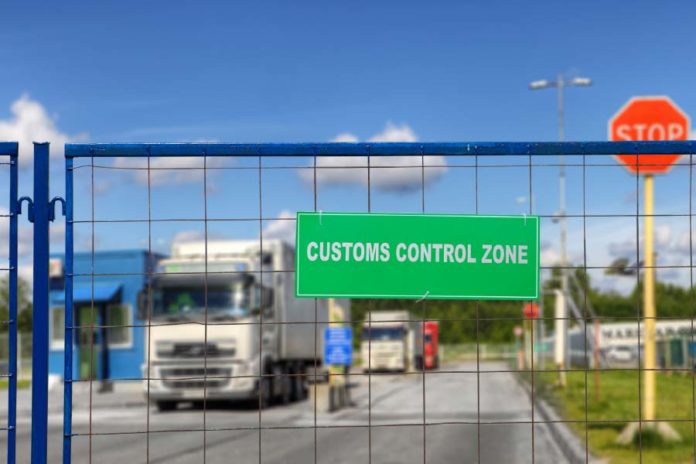Following the recent entry into force of the Customs (Amendment) Act 2018 and the Customs (Amendment No. 2) Act 2018, the new Malaysian government has introduced another round of amendments to the Customs Act 1967 via the Customs (Amendment) Act 2019.
The amendment act was passed by the lower house of parliament on 8 April 2019, and the upper house on 7 May 2019, and gazetted as an act of parliament on 9 July 2019.
The amendment act spans 132 pages of amendments and to date it represents the most significant round of changes to the Customs Act introduced under the new government. The amendment act outlines approximately 96 amendments to existing provisions within the Customs Act and seeks to introduce approximately 61 new provisions.
16 key amendments
- Timeline to Demand for Back Duties. The timeline within which the Royal Malaysian Customs Department may demand for payment of duties underpaid will be extended from three to six years. Accordingly, the scope of customs audits is expected to be extended beyond the standard three-year audit period.
- Changes to the compounding of offences provision. The amendment act provides for the issuance of regulations relating to the compounding of offences, which would set out the offences which can be compounded, the criteria for compounding and methods and procedures for compounding such offences. Such compound is to be offered in writing and shall be for an amount not exceeding 50% of the maximum fine for that offence.
- Issuance of public rulings. The director general of customs is now empowered to issue public rulings on the application of any provision of the Customs Act. This may result in more transparency in the operations of customs, as well as enhanced clarity on Customs’ interpretation of the Customs Act.
- New categories of offences. Various new categories of offences have been introduced, including offences relating to the destruction or manipulation of data stored in computers, unlawful claims for drawback, unlawful claims for refunds, incorrect declaration of origin, etc.
- (Enhanced powers of enforcement. Subject to authorization of the public prosecutor, Customs officers are granted new powers to intercept communications that may contain information relevant for the purposes of investigating any offences under the act. Such forms of communication that may be intercepted include postal articles, messages and conversations transmitted by any telecommunication.
- Rules of origin. The amendment act introduces a new chapter that regulates various aspects relating to the origin of goods including the appointment of issuing authorities, application for certificate of origin, registration for producing a declaration of origin, responsibility of the importer, producer and exporter, eligibility criteria to claim preferential tariffs and verification of origin-related documents and information.
- Record keeping requirements. These requirements under the Customs Act will be extended from six to seven years. The amendment act also sets out a clear list of records that will be subject to the extended seven years of record keeping requirements, including any accounting, management and financial records as well as business records such as sales, distribution and royalty agreements, which may affect a person’s obligations under the Customs Act.
- Free zones. Pursuant to the amendment act, free zones will be deemed to be a place “outside a principal customs area” for the purposes of the Customs Act, as opposed to “outside Malaysia”.
- Transit and transhipment. The amendment act significantly overhauls legislative provisions regulating transit and transhipment activities. The amendment act introduces provisions to safeguard goods moved under transit and transhipment, requirements for the owner of goods in transit or transhipment, or an agent, to be immediately liable to pay duties leviable when transit/transhipment procedures are interrupted, as well as heavy penalties for breach of the procedures.
- Licensed warehouses. The Amendment Act provides that in cases of deficiencies in quantities of dutiable goods at a licensed manufacturing warehouse, a licensee is, in the absence of proof to the contrary, presumed to have illegally removed the goods and is liable to pay Customs duty on the deficient goods. A licensed warehouse licensee will also be mandatorily required to provide appropriate customs office and facilities at the licensed warehouse at the licensee’s own expense.
- Timeline to claim duty refund. The amendment act amends section 16 of the Customs Act to impose a one-year timeline to submit a refund claim for duties paid pending origin verification, appeal to the Director General or appeal to the Customs Appeal Tribunal from the date that the decision on verification of origin, review and appeal is made known to the claimant.
- Directors’ liability. The amendment act extends the joint and several liability to cover surcharges, penalties, fees or other money payable to customs.
- New powers to offset. The amendment act seeks to introduce a new power granted to customs to offset any drawback or refund due to a person against any customs duty, excise duty, sales tax, service tax, GST and other amounts owing by such person.
- Section 93 duty drawback. Section 93 provides for a drawback facility for duty paid on imported goods that are subsequently re-exported. The timeline for the goods to be re-exported for duty drawback purposes has been reduced from 12 months to three months from the date upon which customs duty is paid. The minimum threshold for eligibility will be increased from RM50 (US$12) to RM200.
- Confidentiality of information. The confidentiality provision under the Customs Act is revamped to provide that all information, documents or declarations relating to importation, exportation, valuation, classification or origin determination of any goods are to be treated as confidential by customs officers.
- Pulau pangkor. The amendment act introduces an entirely new Part XIXD to provide for the appropriate customs treatment for transportation of goods to and from Pulau Pangkor, as a new duty-free island.
Given the extensive amendments that are introduced, a comprehensive understanding of the new customs regime is key to ensure that businesses can fully comply with the new and overhauled customs law.
Business Law Digest is compiled with the assistance of Baker McKenzie. Readers should not act on this information without seeking professional legal advice. You can contact Baker McKenzie by emailing Danian Zhang at danian.zhang@bakermckenzie.com.




























